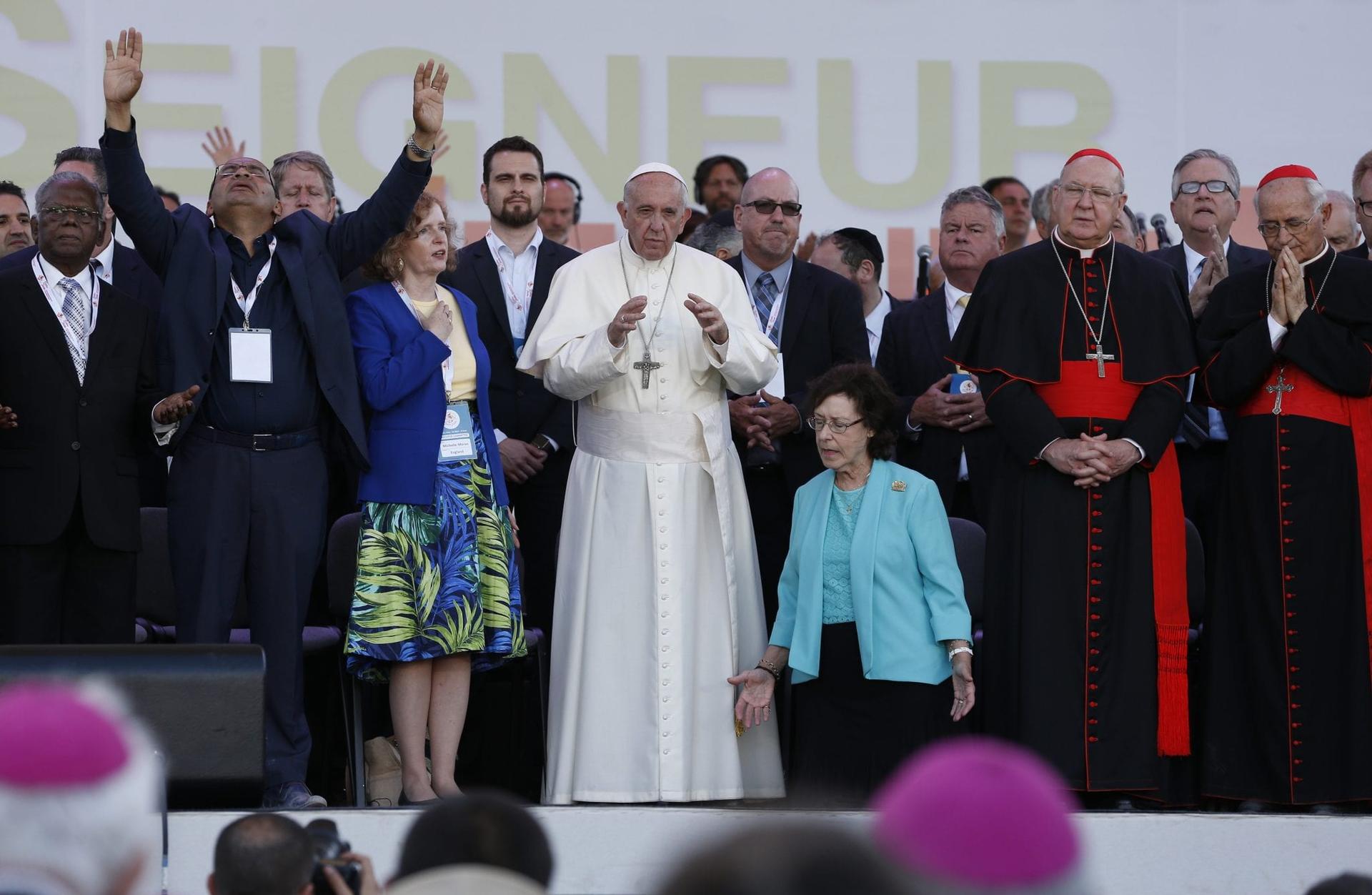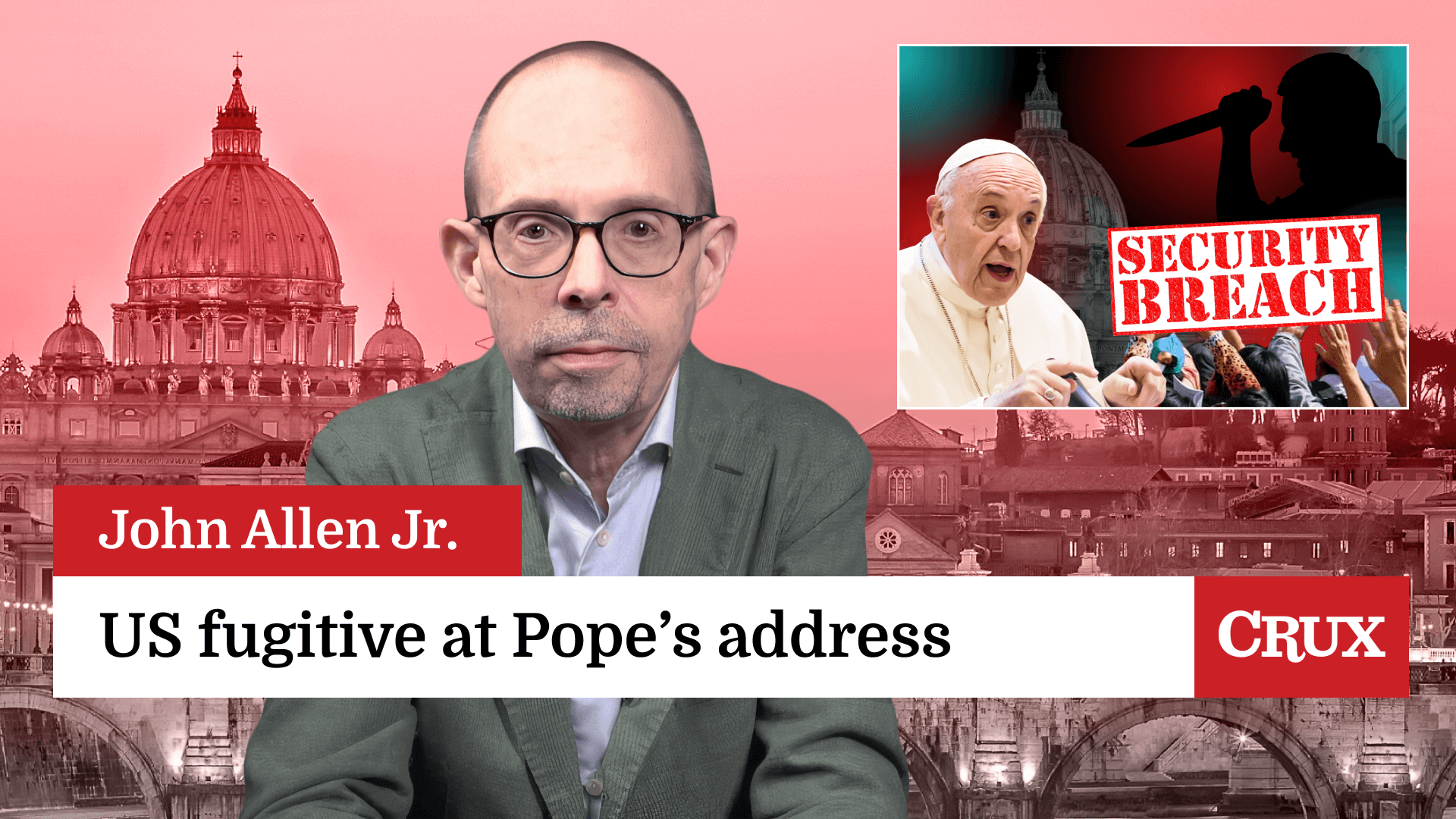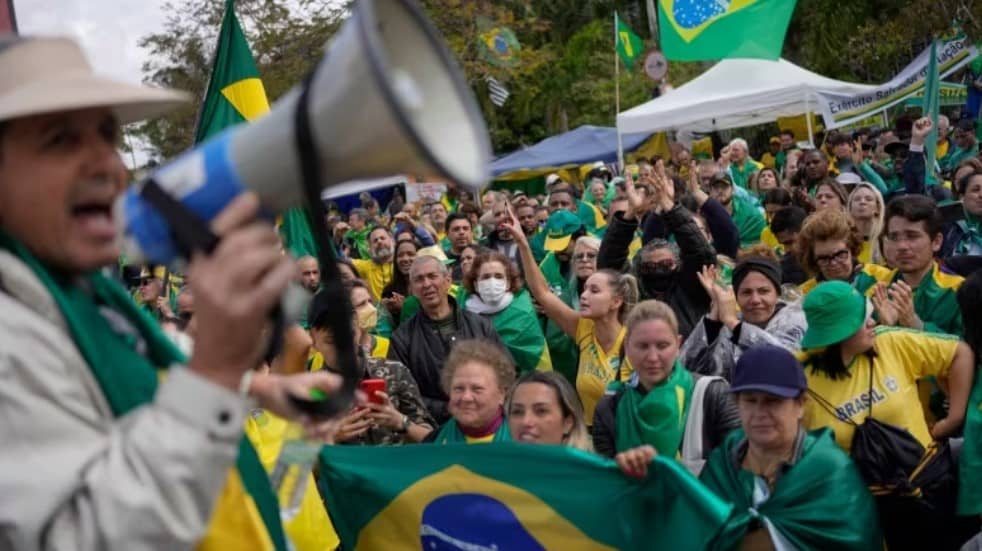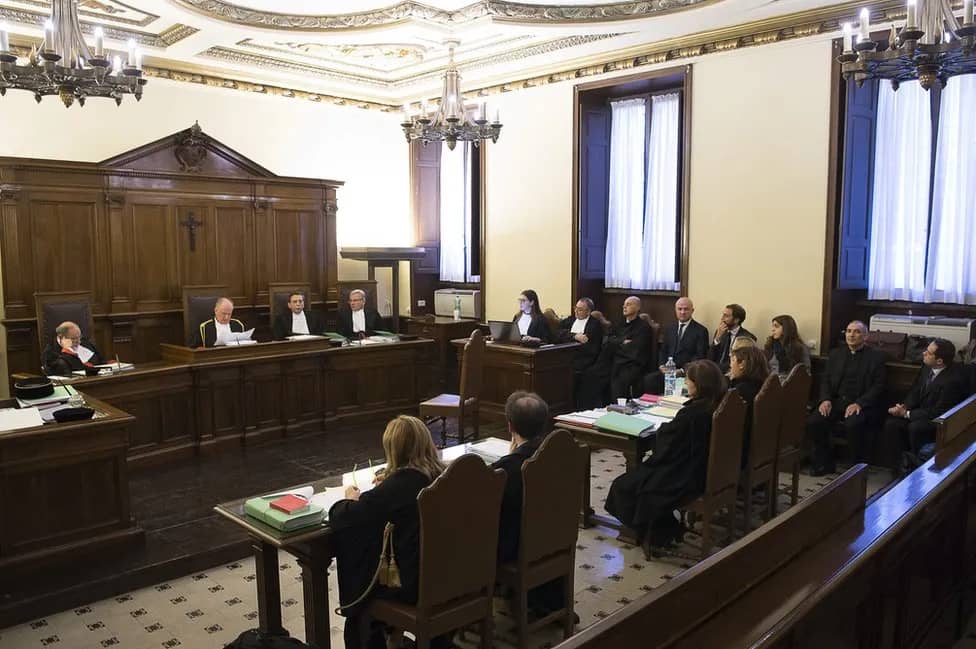NEW YORK — At the request of Pope Francis, the Vatican has established a new body to oversee the global Catholic Charismatic Renewal, which launched December 8, creating a single group in Rome for a movement almost defined by its lack of most official structures.
The new body, known as CHARIS (“Catholic Charismatic Renewal International Service”), will function within the Vatican Dicastery of Laity, Family, and Life, headed by American Cardinal Kevin Farrell.
According to Bishop Peter Smith, an auxiliary in Portland, Oregon, who’s been appointed to represent North America on the newly formed CHARIS committee, their work will have a two-pronged focus of leadership and service.
Unlike many other movements within the Church, the new body, which will represent an estimated 115 million Catholic charismatics around the world, is meant to serve as a point of reference rather than a formal, hierarchical structure.
Smith told Crux that unlike other ecclesial movements, such as Communion and Liberation or the Focolare, Catholic charismatics are not tied to a particular founder or structure.
Smith cited a phrase first used by Pope Paul VI and now repeated often by Francis, that the movement is a “current of grace” within the Church — where its ministries and programs are not explicitly defined by their openness to the Holy Spirit.
Those ministries and programs often take the form of spiritual retreats, prayer meetings and days of ministry, and the style of worship is often effusive, sometimes marked by speaking in tongues, healings, and other traditional “gifts of the spirit.”
The 20-member committee, which will be headed by Belgian Jean-Luc Moens of the Emmanuel Community, will meet together for the first time in Rome next year at Pentecost. The new committee will serve a three-year term, and effective on Pentecost, CHARIS will replace two previously existing Charismatic organizations – the International Catholic Charismatic Renewal Service and the Catholic Fraternity of Charismatic Covenant Communities and Fellowships.
Smith told Crux that he believes the point of a new structure is for the Holy Father and the Vatican to have a chance to speak directly to the committee of CHARIS, and for them to relate that back to the various points of contact within their own regions.
In June 2016, Francis joined over 50,000 pilgrims from 120 countries to mark the fiftieth anniversary of the Catholic Charismatic Renewal, which traces its roots back to a religious awakening first started in Duquesne, Pennsylvania and has now spread across the globe.
On that occasion, Francis focused on the theme of Christian unity, where he spoke of the shared witness of Catholic charismatics, along with Orthodox, Lutheran, and other Protestant Christians. He went on to call for a “reconciled diversity,” despite inter-confessional differences.
“Walking together, working together, loving each other, and together seeking to explain our differences and seeking agreement, but on the way! If we stay put, without walking together, we will never, ever, reach agreement, because the Spirit wants us walking,” the pope said at the time.
Among the movement’s key figures, who will also serve on the CHARIS committee, is the Preacher of the Papal Household, Capuchin Father Raniero Cantalamessa. This January, he will lead a weeklong retreat for the American bishops as they seek to respond to the mounting sexual abuse crisis in the United States.
Smith told Crux that while different popes have enjoyed close relationships with various ecclesial movements, Pope Francis has come to have a particular affinity for charismatics.
“He was initially skeptical of it, but then he saw its impact on the lives of people close to him, and over time, he has become very fond of it,” Smith observed.
Smith said that he believes there are three common themes that all ecclesial movements share in common: an encounter with Jesus Christ or the Trinity, a desire that leads to people seeking a deeper communion with others that share the faith, and a greater sense of the importance of the apostolate and the mission of the Church.
He also added that the new movements are “overwhelmingly” made up of and led by lay people.
While the exact functions of CHARIS may seem vague, both Smith and Paolo Maino, who’s head of the Communità Via Pacis and will represent Italy and Europe for CHARIS, told Crux the new structure seems born of Francis’s desire to elevate the work of charismatics and make it more accessible.
“The pope has often underlined the impact that the charismatic movement has on people’s lives,” said Maino.
“CHARIS plans to bring the love of God in the heart of every man,” Maino continued, “which is in the DNA of charismatics.”
Crux’s Clairè Giangravè contributed to this story from Rome.
















